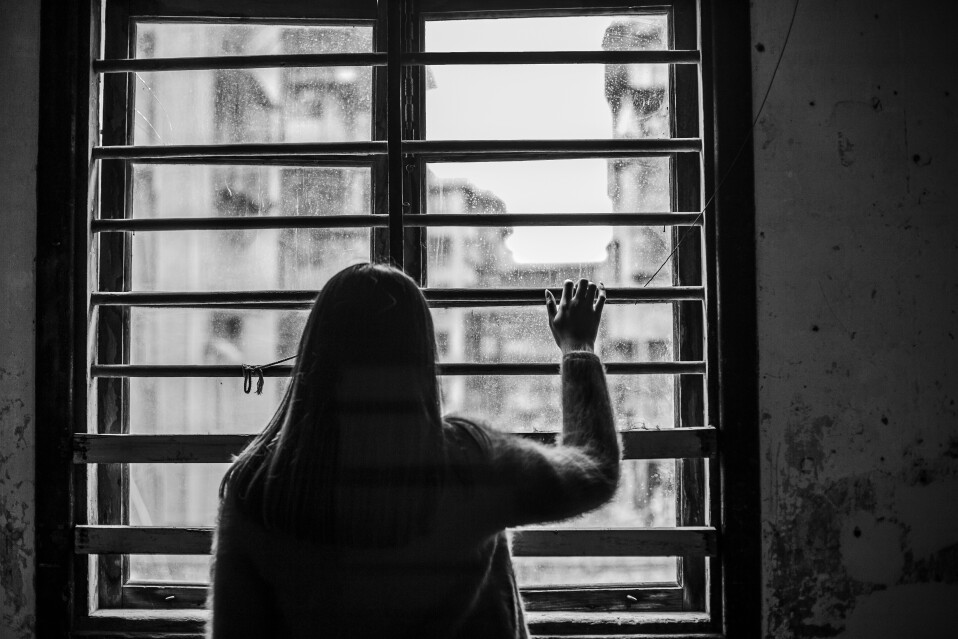Health & Wellness
The Wounds Of The Heart
In the depths of our souls, the place where vulnerability and
trust can find a nourishing home, we also encounter the
profound pain of betrayal. Betrayal is a wound that cuts deep,
leaving scars that linger long after the initial hurt. To explore
the complexities of this emotional turmoil, we can turn to the
words of Maya Angelou in an excerpt from her renowned
poem "Still I Rise":
Did you want to see me broken?
Bowed head and lowered eyes?
Shoulders falling down like teardrops,
Weakened by my soulful cries?
Does my haughtiness offend you?
Don't you take it awful hard
’Cause I laugh like I've got gold mines
Diggin’ in my own backyard.
You may shoot me with your words,
You may cut me with your eyes,
You may kill me with your hatefulness,
But still, like air, I’ll rise.
— MAYA ANGELOU
In these verses, Angelou captures the essence of resilience and
the indomitable spirit that persists even in the face of profound
adversity. The wounds of the heart, inflicted by betrayal, may
attempt to break us, but they do not define us. Rather, they serve
as catalysts for growth and transformation. In this chapter,
we’ll delve into the intricate nature of betrayal-trauma as we
seek first to understand the things that have harmed us,
defining our pathway towards healing.

What Is Betrayal Trauma?
While we all possess different understandings of exactly what
betrayal trauma entails, it’s something that exists at the core of
our inner experience. When we feel it, we know it. It’s best
defined as the emotional and psychological pain caused by a
betrayal from someone, we hold dear or once held dear,
someone we trusted and made ourselves vulnerable to. Betrayal
can come from various sources, including partners, family
members, or friends. Only by grasping the true meaning and
weight of betrayal trauma can we begin to carve out the path
toward healing.
(Expert from Betrayal Trauma by Beverly Holmes)
--- New Post ---
Ties That Bind
There are moments when we all find ourselves bound by
invisible chains, feeling like we’re trapped in a web of
emotional entanglement. These links that snake themselves
around us, born out of betrayal and trauma, can hold us captive,
hindering our growth and stifling our true potential. In this
chapter, we’ll explore the intricate nature of betrayal trauma
bonds and look at the profound impact they can have on our
lives.
As we embark on this journey, let us first immerse ourselves in
the words of William Ernest Henley's powerful poem,
"Invictus."
Out of the night that covers me,
Black as the pit from pole to pole,
I thank whatever gods may be
For my unconquerable soul.
In the fell clutch of circumstance
I have not winced nor cried aloud.
Under the bludgeonings of chance
My head is bloody, but unbowed.
— WILLIAM ERNEST HENLEY
Henley’s poem portrays a resilient spirit that refuses to
surrender to the challenges and hardships of life. He acknowl‐
edges the darkness and difficulties that life throws at us but
expresses gratitude for staying resolute in the face of great chal‐
lenges. This declaration reflects our focus on empowering
ourselves as we begin to navigate betrayal trauma and reclaim
our strength and autonomy.
It doesn't matter how narrow the path or how severe the
punishments; the sentiment expressed in the poem aligns with
the objective of our healing journey: Helping ourselves regain
control over our own lives, healing from betrayal trauma, and
shaping our own future.

UNDER STANDING BETRAYA L TRAUMA BONDS
Betrayal trauma bonds are a unique psychological response to
abuse in which we sometimes form a deep attachment to the
perpetrator despite the harm inflicted upon us. To comprehend
the complexities of these bonds, it's essential to explore their
origins and unravel the intricate web they cast.
-- New Post --
The Threads of Grief
Let Love clasp Grief lest both be drown'd, Let darkness keep her raven gloss: Ah,
sweeter to be drunk with loss, To dance with death, to beat the ground, Than that the
victor Hours should scorn The long result of love, and boast, `Behold the man that
loved and lost, But all he was is overworn. –Alfred Lord Tennyson.
Grief is not one singular entity but an amalgamation of many different emotions and
experiences that converge simultaneously to create unrest and confusion and make it
difficult to mature through a learning experience. Understanding the true nature of grief
will provide much-needed clarity to people who feel overwhelmed by the changes it brings
about emotionally, physically, and spiritually. Although painful and intimidating, these
changes are natural and necessary. However, our brains might not be aware of this yet
and therefore try to reject what they perceive as a dangerous and harmful influence on an
otherwise stable reality.
The process of managing grief is lengthy and composed of many moving parts. One of the
best ways to arm yourself with the necessary tools not to let yourself become a victim of
yourself is to gain the knowledge and insights that will allow you to always remain
cognizant of what influences are natural, normal, and healthy and which ones you need
to address productively to ensure you do not start avoiding or deflecting growth.
Grief is a subject that almost everyone has a preconceived notion about, which they
subconsciously employ when conceiving a definition or general understanding of what it
means and what it entails. However, there are several reasons why grief is a topic that is
many times misunderstood and misrepresented; among them is believing that grief is
something that happens the same way to everyone and not exploring its true nature in
times when we are not experiencing the crippling side effects, making our ability to reason
and comprehend significantly impaired.

Understanding grief is a powerful tool everyone must have in their arsenal, regardless of
their experience with it or lack thereof. Because there is no blueprint or one way to
navigate or prepare for the tumultuous waters of loss and mourning, the best thing we
can do is be knowledgeable on the matter so we can face our feelings head-on and know
what they are and why they are paying us such regular visits.
Although being educated on grief won't afford you the ability to circumvent the
challenging experience, it will allow for the process to run its course in a more natural and
unobstructed way, allowing for the vital lessons and changes that come about through
grieving to embed themselves into your consciousness and in doing so make you a
stronger and more able person.
